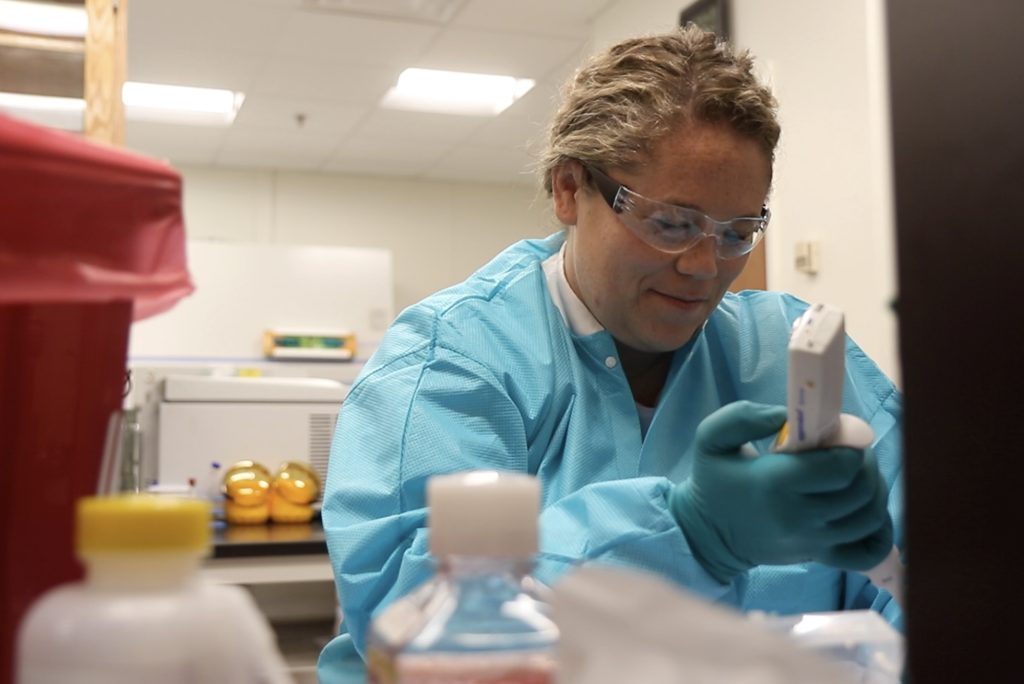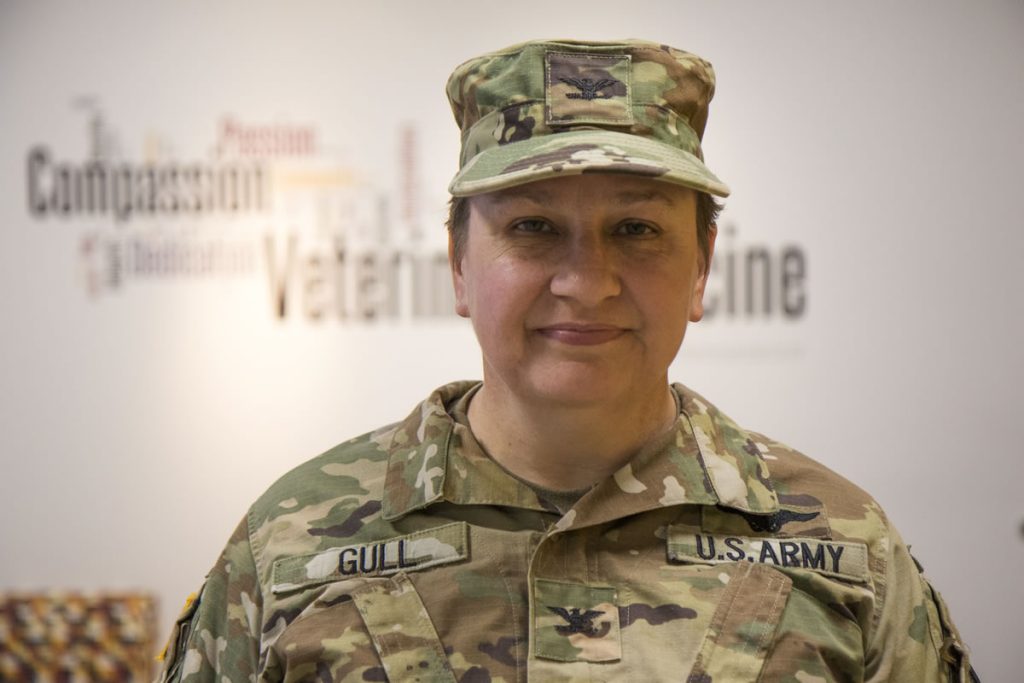
Mizzou VMDL Expands Rabies Testing Services

The University of Missouri College of Veterinary Medicine Veterinary Medical Diagnostic Lab is now offering human rabies serology titer testing. The VMDL uses a rapid fluorescent foci inhibition test or RFFIT — a serum neutralization test that measures the ability of rabies specific antibodies to neutralize the rabies virus and prevent it from infecting cells. This identifies an individual’s rabies antibody titer, which is an estimation of an immune response against the rabies virus. These are used to check and monitor immunity from previously acquired rabies vaccinations for people at an elevated risk of rabies exposure.
Occupations that involve working with animals and wildlife, including animal control workers, veterinary professionals, bat biologists and wildlife conservationists, create a higher risk of rabies exposure. People traveling to rabies endemic areas, wildlife rehabilitators, and cavers may also be at an increased risk. Rabies expert Susan Moore, MS, PhD, associate clinical professor, section head of the Mizzou One Health-Rabies Laboratory, says people in these situations should get vaccinated and continue checking their titer.
“The rabies vaccine given for pre-exposure prophylaxis (PrEP) primes the immune system such that upon a recognized rabies exposure, the post-exposure prophylaxis (PEP) is shortened, and no rabies immunoglobulin is required, creating a quicker and less expensive PEP,” said Moore. “In addition, PrEP may provide some protection from rabies for unrecognized exposures. For those at a particularly high risk of unusual or unrecognized exposure, rabies titer testing is recommended to assure a level of circulating rabies neutralizing antibodies is present.” Read more
CVM’s Col. Gull Works to Improve Army Equine Standards During Deployment

Tamara Gull, DVM, PhD, first joined the United States military in 1988. Fresh out of college, Gull became an active-duty member of the Navy, serving as a pilot for five years. During that time, it became evident to her that her military career path was not headed in a direction she wanted. She left the service to enroll at Tufts University College of Veterinary Medicine. After graduating from veterinary school and completing an internship, she began a residency.
“Once I was in my residency for about a year, it occurred to me that I could still do some military service, but I wanted it to be more in line with my current profession,” said Gull. “I was inactive Navy Reserve at the time but approached the Army about switching services. I officially joined the Army in 2000 and have been with them ever since.”
Gull, who works as an associate clinical professor in veterinary pathobiology at the University of Missouri College of Veterinary Medicine and as section head for bacteriology and mycology in the MU Veterinary Medical Diagnostic Laboratory, is a colonel in the Army Veterinary Corps.
“As a reservist, I’m known as a DIMA or Drilling Individual Mobilization Augmentee,” she said. “Typical reservists do one weekend a month, two weeks a year, drilling with a Reserve unit, but DIMAs don’t do that. We are assigned as backfill to an active-duty unit, and more specifically as backfill to a specific person in an active-duty unit. I am assigned as backfill to Public Health Command, West in San Antonio, as a substitute for their commander.”
While serving as a DIMA, Gull can be called to serve for long or short stints at the discretion of the individual for whom she backfills. However, she says that it is not common. “Since it doesn’t happen that often, it essentially makes me an asset for that unit to assign to special projects,” said Gull. “One of the things I’ve been doing over the past several years is serving at the Army’s food and diagnostic laboratory that belongs to Public Health Command, West. I’m a microbiologist, so I spend a lot of my active-duty time working there.” Read more
MU VMDL One Health/Rabies Lab Expanding Export Testing Services
The OHL is expanding its pet export testing services to destinations such as Israel, Turkey, and other countries requiring FAVN testing be performed at an EU-approved laboratory, Non-EU Countries – European Commission (europa.eu). To find your destination country requirements check out the USDA APHIS website.
UNDER THE SCOPE – SPRING 2024
